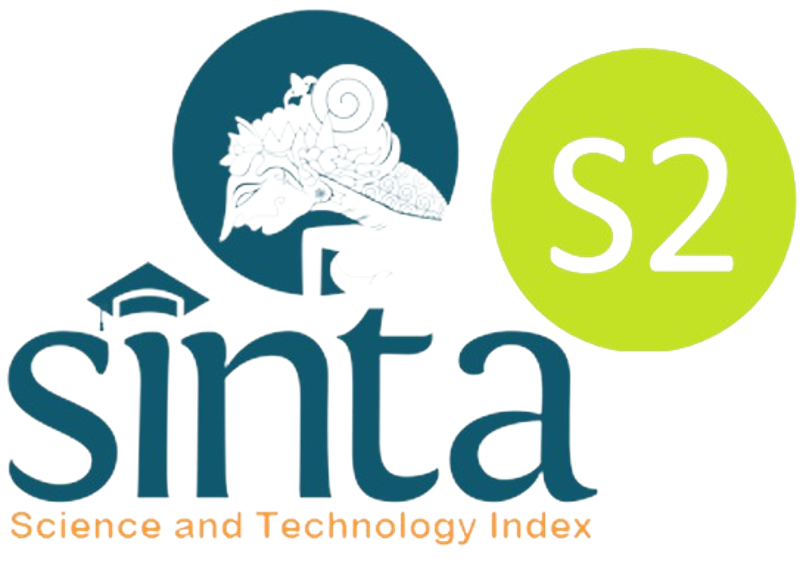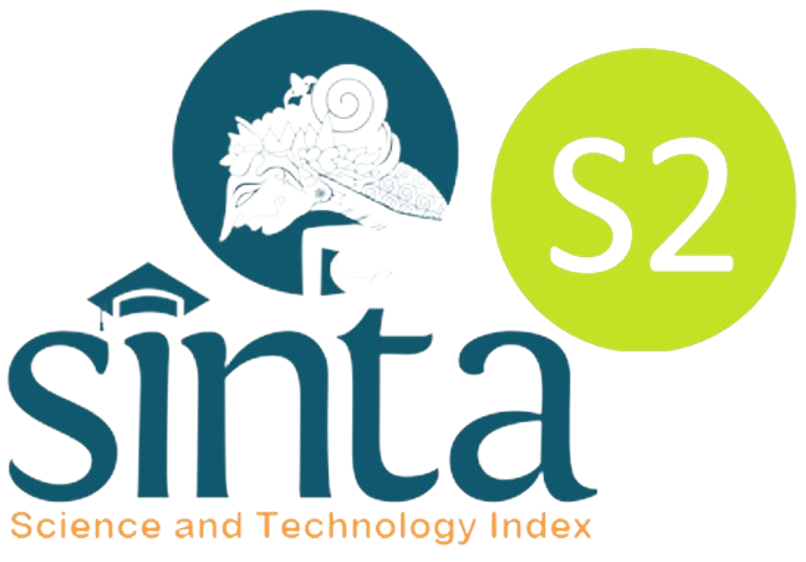Analysis of Physics Concepts in Playgrounds at GoFun Bojonegoro as Learning Materials for Students
DOI:
https://doi.org/10.26740/jpps.v13n2.p100-112Keywords:
Edutainment, Game, GoFun Bojonegoro, Physics concept , Physics LearningAbstract
Objective: GoFun Bojonegoro is one of the area edutainments in Bojonegoro which has rides for games and entertainment with an attractive appeal for visitors. This study aims to analyse the physics concepts that exist in several game rides in GoFun Bojonegoro Theme Park. Some of the rides available at the park have interesting physics concepts to learn. Method: This type of research is descriptive qualitative research with observation, documentation, and analysis methods as a form of data collection. Results: There are three vehicles analysed namely, Pirates Ship, Mini Ontang-Anting, and Bom-Bom Car, which works based on the concept of physics. There are various physics concepts in the vehicle, such as the concept of oscillation, centrifugal force, circular motion, Newton's third law, collision, and the law of conservation of momentum and impulse. By integrating physics learning in the vehicle or edutainment make learning more fun. Novelty: This research provides edutainment-based learning that can increase the effectiveness of students in learning physics concepts and make students more active and learning looks fun.
Downloads
References
Arya, A. P. (1997). Introduction to Classical Mechanics (2nd ed.). Pearson.
Arzak, K. A., Neswary, S. B. A., & Fitriyah, H. (2021). Analysis of the use of circular motion physics concepts on game rides in Jawa Timur Park 1. Studies in Philosophy of Science and Education, 2(2), 25-35. https://doi.org/10.46627/sipose.v2i2.107
Astuti, I. A. D., Sumarni, R. A., Setiadi, I., & Damayanti, A. (2022, November). Ethnophysical studies on salai jin dance in North Maluku as a source of learning physics. In Proceeding International Conference on Digital Education and Social Science, 1(1), 80-87. https://prosiding.appipgri.id/index.php/icdess/article/view/12
Astra, I. M., Henukh, A., & Uskenat, K. (2024). Physics edutainment: Improving conceptual understanding of students. AIP Conference Proceedings, 070009. https://doi.org/10.1063/5.0210255
Feiyue, Z. (2022). Edutainment methods in the learning process: Quickly, fun and satisfying. International Journal of Environment, Engineering and Education, 4(1), 19-26. https://doi.org/10.55151/ijeedu.v4i1.41
Halliday, D., Walker, J., & Resnick, R. (2014). Fundamental of physics (10th ed.). John Wiley.
Hariyono, E., Rizki, I. A., Rizqillah, I. A., Citra, N. F., Shobah, N., & Zainuddin, A. (2022). Physics edutainment learning based on engklek and ontang-anting games : Creating fun physics for students. Journal of Physics: Conference Series, 2392, 012023. https://doi.org/10.1088/1742-6596/2392/1/012023
Husnaini, S. J., & Chen, S. (2019). Effects of guided inquiry virtual and physical laboratories on conceptual understanding, inquiry performance, scientific inquiry self-efficacy, and enjoyment. Physical Review Physics Education Research, 15(1), 10119. https://doi.org/10.1103/PhysRevPhysEducRes.15.010119
Indriati, D. (2012). Meningkatkan hasil belajar IPA konsep cahaya melalui pembelajaran science-edutainment berbantuan media animasi. Jurnal Pendidikan IPA Indonesia, 1(2). https://doi.org/10.15294/jpii.v1i2.2138
Jatmiko, B., Prahani, B. K., Suprapto, N., Admoko, S., Deta, U. A., Lestari, N. A., Jauhariyah, M. N. R., Yantidewi, M., & Muliyati, D. (2021). Bibliometric analysis on online physics learning during covid-19 pandemic: Contribution to physics education undergraduate program. Journal of Physics: Conference Series, 2110(1), 012018. https://doi.org/10.1088/1742-6596/2110/1/012018
Johnson, R. B., & Christensen, L. (2014). Educational research: Quantitative, qualitative and mixed approaches (5th ed.). SAGE Publications, Inc.
Kancanadana, G., Saputri, O., & Tristiana, V. (2021). The existence of traditional games as a learning media in elementary school. Proceedings Book International Conference on Early and Elementary Education 2021. http://hdl.handle.net/11617/12536
Pendrill, A. M. (2020). Forces in circular motion: discerning student strategies. Physics Education, 55(4), 045006. https://doi.org/10.1088/1361-6552/ab8047
Rohman, A. A. N., Jumadi, Wilujeng, I., & Kuswanto, H. (2020). The Influence of outdoor learning models on critical thinking ability. Journal of Physics: Conference Series, 1567(3), 032093. https://doi.org/10.1088/1742-6596/1567/3/032093
Sharon, A. J., & Baram?Tsabari, A. (2020). Can science literacy help individuals identify misinformation in everyday life?. Science Education, 104(5), 873-894. https://doi.org/10.1002/sce.21581
Shute, V., Rahimi, S., Smith, G., Ke, F., Almond, R., Dai, C. P., ... & Sun, C. (2021). Maximizing learning without sacrificing the fun: Stealth assessment, adaptivity and learning supports in educational games. Journal of Computer Assisted Learning, 37(1), 127-141. https://doi.org/10.1111/jcal.12473
Siripipatthanakul, S., Muthmainnah, M., Siripipattanakul, S., Sriboonruang, P., Kaewpuang, P., Sitthipon, T., & Jaipong, P. (2023). Gamification and edutainment in 21st century learning. Multidisciplinary Approaches to Research, 2(1), 210-219. https://ssrn.com/abstract=4367648
Velly, D. (2021). Increasing the motivation and learning outcomes of students through the application of the problem based learning model in learning physics. Journal of Science and Science Education, 2(1), 52-57. https://doi.org/10.29303/jossed.v2i1.719
Volfson, A., Eshach, H., & Ben-Abu, Y. (2020). Identifying physics misconceptions at the circus: The case of circular motion. Physical Review Physics Education Research, 16(1), 10134. https://doi.org/10.1103/PhysRevPhysEducRes.16.010134
Wanabuliandari, S., & Ardianti, S. D. (2023). Effectiveness of edutainment module based on local excellence of pantai utara Indonesia reviewed from students' concept understanding. Pegem Journal of Education and Instruction, 13(3), 41-46. https://doi.org/10.47750/pegegog.13.03.05
Wati, E., Yuberti, Saregar, A., Fasa, M. I., & Aziz, A. (2021). Literature research: Ethnoscience in science learning. Journal of Physics: Conference Series, 1796(1). https://doi.org/10.1088/1742-6596/1796/1/012087
Zhang, Y., Li, J., He, Z., Cheng, J., Tan, Z., & Liu, L. (2021). Comparative analysis of typical grab knots force test in rope rescue. IOP Conference Series: Earth and Environmental Science, 831(1), 012021. https://doi.org/10.1088/1755-1315/831/1/012021
Downloads
Published
How to Cite
Issue
Section
License
Copyright (c) 2024 JPPS (Jurnal Penelitian Pendidikan Sains)

This work is licensed under a Creative Commons Attribution-ShareAlike 4.0 International License.
 Abstract views: 247
,
Abstract views: 247
, PDF Downloads: 309
PDF Downloads: 309












